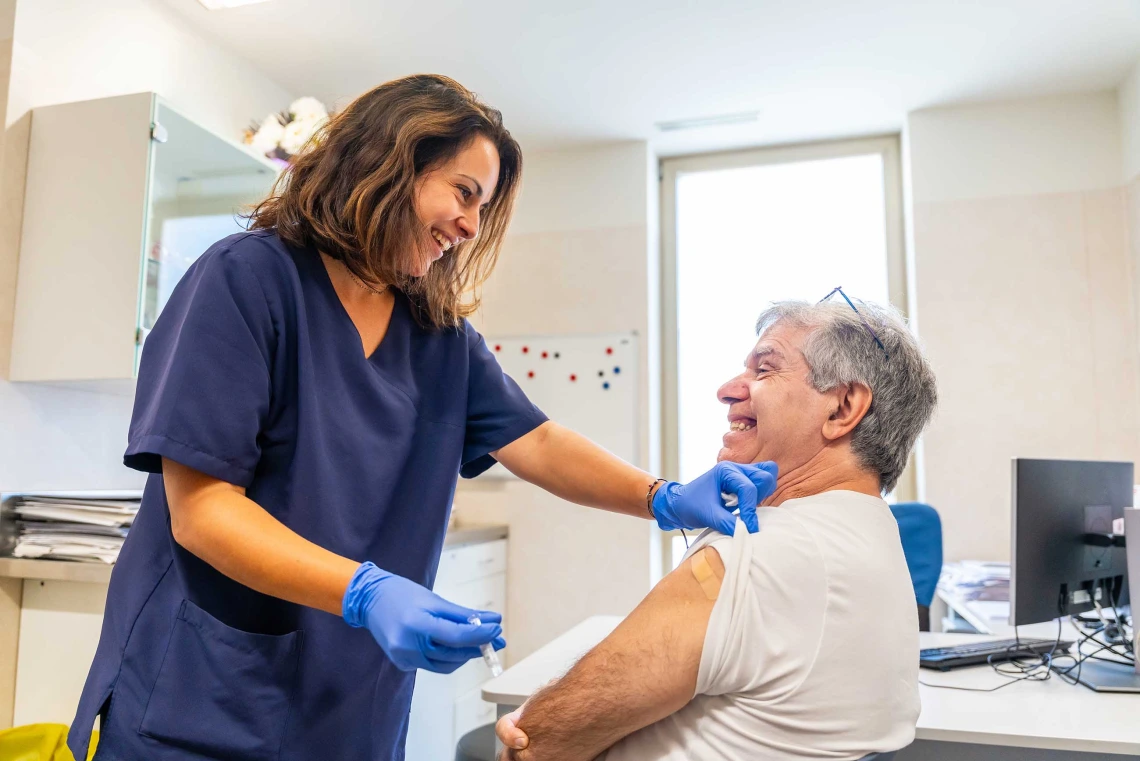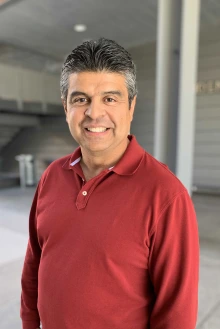$1.75M CDC grant funds study to boost vaccine acceptance in Arizona’s rural, border communities
Epidemiologist Tomas Nuño, PhD, is leading a study designed to improve vaccination rates and create new strategies to break down barriers to vaccination in populations with limited access to health care.

Researchers will be seeking to understand how trust, socioeconomic factors and beliefs about vaccines affect vaccination rates in rural and border regions during a new study funded by the Centers for Disease Control and Prevention.
Photo by Iparraguirre Recio via Getty Images
Researchers at the University of Arizona’s Mel and Enid Zuckerman College of Public Health received a $1.75 million Centers for Disease Control and Prevention grant to conduct a community-based, participatory research study designed to improve vaccine uptake in Arizona’s rural and border communities.
Vaccination is a highly effective public health intervention that saves millions of lives per year, yet vaccination rates have declined in recent years for a variety of reasons, ranging from safety concerns to religious and philosophical objections.

Tomas Nuño, PhD, is an assistant research professor in the Department of Epidemiology and Biostatistics at the University of Arizona Mel and Enid Zuckerman College of Public Health.
Photo by Shipherd Reed, U of A Mel and Enid Zuckerman College of Public Health
“Vaccination is a cornerstone of public health,” said co-principal investigator Tomas Nuño, PhD, an assistant research professor in the Department of Epidemiology and Biostatistics. “We need to build trust and connection so that our community partners see the benefits of vaccination across the lifespan. They also need to be able to evaluate all the misinformation about vaccines that is so common now.”
The five-year study, titled “Community-Based Participatory Research to Enhance Vaccine Uptake Across the Lifespan through Innovative Points of Access and Altering Norms in Border and Rural Regions,” will integrate socioecological and health beliefs model framing to understand the roles of socioeconomic factors, trust in health systems and public health authorities, and perceptions of vaccine efficacy and risk.
Following the COVID-19 pandemic, the Chiricahua Community Health Centers Inc. in rural southeast Arizona initiated an innovative project to enhance vaccination by placing an immunization specialist in dental clinics affiliated with the federally qualified health center system. This approach has shown promising results.
Nuño will lead a research team that seeks to build on the success of CCHCI’s community-based dental clinic immunization program. The team will expand the CCHCI program and initiate a partnership with the Mariposa Community Health Center in Santa Cruz County to increase vaccine uptake among adults, adolescents, families and communities.
Researchers will also develop, pilot and assess a multilevel intervention strategy aimed at improving vaccination rates within populations that face barriers to health care access. They will focus on people residing in rural and hard-to-reach areas or individuals who do not typically utilize Federally Qualified Health Centers.
Nuño, assistant research professor in epidemiology and biostatistics and engagement core faculty lead for the University of Arizona-Banner Health All of Us Research Program, will lead this project with co-principal investigator Kate Ellingson, PhD, an associate professor in epidemiology and biostatistics, and co-investigator Sheila Soto, DrPH, MPH, an assistant research professor and director of engagement and outreach programs.
“The recent decline in vaccination rates following the COVID pandemic is a top concern for public health,” said Iman Hakim, MD, PhD, MPH, dean of the Zuckerman College of Public Health. “I’m so pleased that Dr. Nuño and his team have received this CDC funding to develop innovative ways to engage our underserved communities and restore trust in vaccines.”
In addition to Nuño, Ellingson and Soto, the research team includes Scott Carvajal, PhD, MPH, professor and chair of the Health Promotion Sciences Department and co-director of the Arizona Prevention Resource Center, and Federally Qualified Health Center partners Emily Harris, MPH, infectious disease program manager for the Chiricahua Community Health Centers Inc., and Patty Molina, MPH, senior director of community health services at the Mariposa Community Health Center.
Expert
Tomas Nuño, PhD
Assistant Research Professor, Department of Epidemiology and Biostatistics, Mel and Enid Zuckerman College of Public Health
Contact
Shipherd Reed
Mel and Enid Zuckerman College of Public Health
520-626-9669, shipherd@email.arizona.edu

